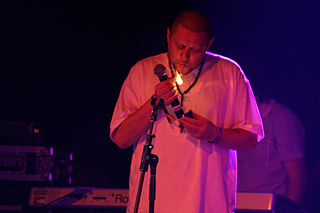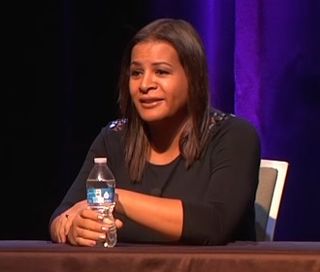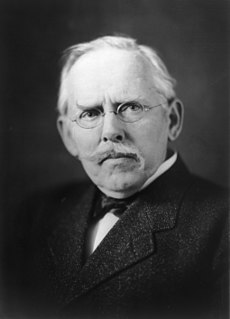A Quote by Shaun Ryder
I don't know why we said half the stuff that we did to journalists. It was almost as if we didn't think they were going to print it.
Related Quotes
I think that all journalists, specifically print journalists, have a responsibility to educate the public. When you handle a culture's intellectual property, like journalists do, you have a responsibility not to tear it down, but to raise it up. The depiction of rap and of hip-hop culture in the media, I think, is one that needs more of a responsible approach from journalists.
Long ago it was said that 'one half of the world does not know how the other half lives.' That was true then. It did not know because it did not care. The half that was on top cared little for the struggles, and less for the fate, of those who were underneath, so long as it was able to hold them there and keep its own seat.
I think that all journalists, specifically print journalists, have a responsibility to educate the public. When you handle a culture's intellectual property, like journalists do, you have a responsibility not to tear it down, but to raise it up. The depiction of rap and of hip-hop culture in the media is one that needs more of a responsible approach from journalists. We need more 30-year-old journalists. We need more journalists who have children, who have families and wives or husbands, those kinds of journalists. And then you'll get a different depiction of hip-hop and rap music.
My buddies and I, we all went to law school together, and once we started working in different cities, we all did crazy stuff, and we'd write e-mails to each other about the stuff we would do. And my friends thought my e-mails were really funny and they said, "Dude, why don't you put this up on a Web site. You know people would love to read this."
Why don’t you purchase an Italian dictionary? I will assume the expense.” “I have one,” she said, “but I don’t think it’s very good. Half the words are missing.” “Half?” “Well, some,” she amended. “But truly, that’s not the problem.” He blinked, waiting for her to continue. She did. Of course. “I don’t think Italian is the author’s native tongue,” she said. “The author of the dictionary?” he queried. “Yes. It’s not terribly idiomatic.
"I don't know," I said. "What else did you do for your first eighteen years?" "Like I said," he said as I unlocked the car, "I'm not so sure that you should go by my example." "Why not?" "Because I have my regrets," he said. "Also, I'm a guy. And guys do different stuff." "Like ride bikes?" I said. "No," he replied. "Like have food fights. And break stuff. And set off firecrackers on people's front porches. And..." "Girls can't set off firecrackers on people's front porches?" "They can," he said... "But they're smart enough not to. That's the difference."
I think David Yates was just like, "You've got on with it for a few years, I'm gonna let you off the hook." And also, I think it's because the action side of stuff that we were doing, it was going to be very difficult to do all that with all the prosthetics on. It was gonna be hard work, and I think they just said, "You know what?" I think they put a level of trust in me, as well. They said, "You know, we're gonna let Neville Longbottom lose the fat suit, lose the teeth, lose the Adolf Hitler hair."
I was in a conversation and someone said: "You know, we were talking about the whole issue of transgender and how it has become so accepted now, and somebody said, 'You know the Oprah show, I think has had a big impact.'" I said, I don't think so. We did several transgender [shows], but we didn't do as much for transgender as I did for, say, abused kids or battered women. And they said, "But no, you started the conversation. You started the conversation and the conversation has led us to here."
People said things they didn't mean all the time. Everybody else in the world seemed able to factor it in. But not Lena. Why did she believe the things people said? Why did she cling to them so literally? Why did she think she knew people when she clearly didn't? Why did she imagine that the world didn't change, when it did? Maybe she didn't change. She believed what people said and she stayed the same." (Lena, 211)
You could have fooled me. Everytime I called you, Luke said you were sick. I figured you were avoiding me. Again." "I wasn't. I did want to talk to you. I've been thinking about you all the time." "I've been thinking about you, too." "I really was sick. I swear. I almost died back there on the ship, you know." "I know. Everytime you almost die, I almost die myself.
When CNN launched in the early 1980s, everybody said: A 24-hour news network won't work. They launched, they did ok, CNN went almost bankrupt because of the risks they had taken, they got bailed out, and 25 years later CNN is a huge global brand. I think the same is going to happen in digital. If you look at the younger generation, there is a huge consumption of digital media and almost no consumption of print or traditional television. Eventually money will follow that. It is just a question of which companies win, how long it takes to get there and what kind of model you need to apply.
































